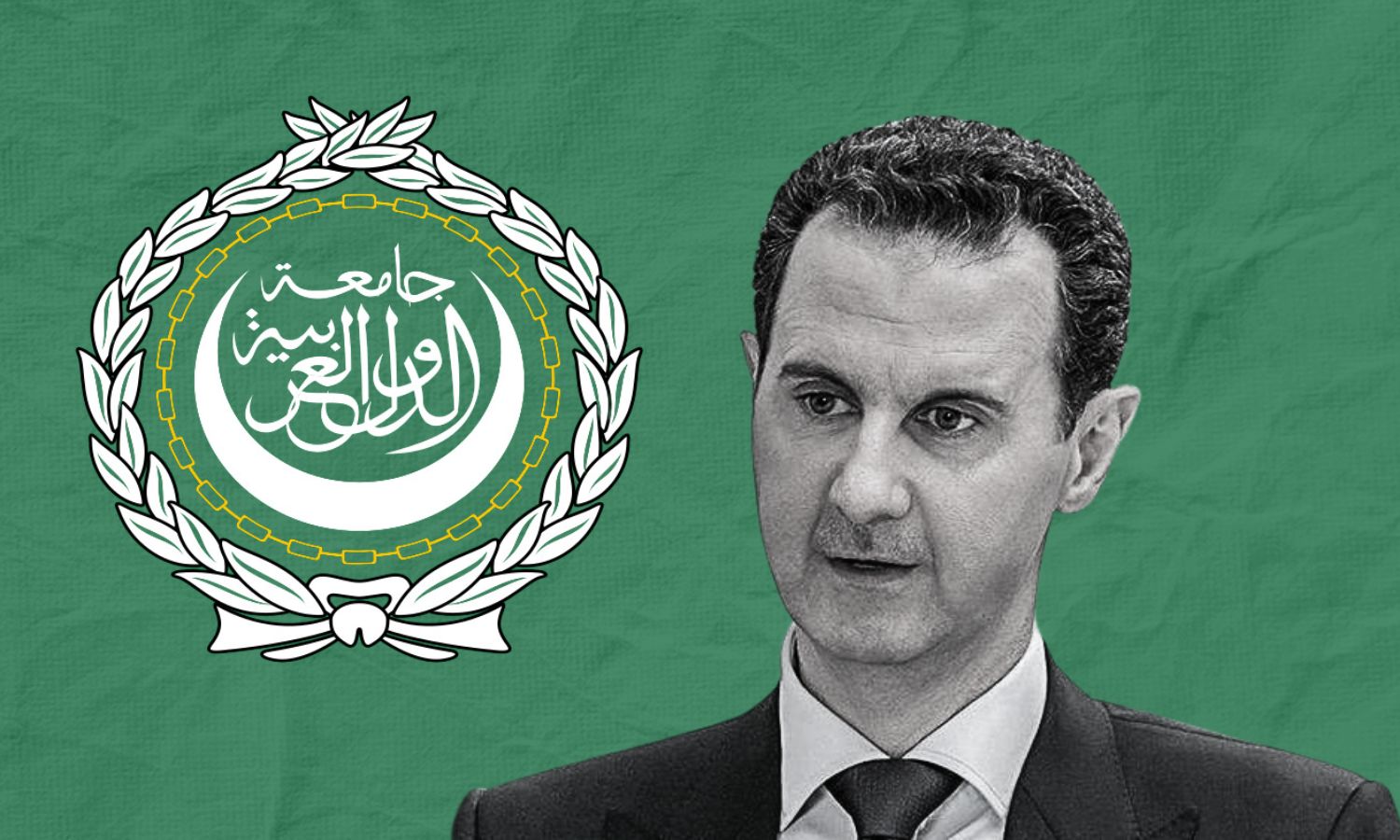The Syrian regime’s membership in the Arab League has been restored after two conferences held in Riyadh and Cairo.
Saudi Arabia took the lead in this process, pushing for the regime’s immediate return to the organization without any conditions.
The Syrian regime sees its return as a symbolic victory and is not expected to make any concessions.
Observers raise questions about the benefits some Arab countries may derive from it, but former Syrian diplomat Bassam Barabandi believes that it aligns with Saudi Arabia’s future vision of making independent political decisions and resolving conflicts according to its own vision.
The network reported that Arab efforts to restore the Syrian regime’s membership in the Arab League have resulted in the regime’s return to occupy Syria’s seat in the organization.
Saudi Arabia has taken the lead in restoring the Syrian regime to the “Arab embrace” and has assumed the responsibility of spearheading political movements on the Syrian file.
The Amman meeting in Jordan, attended by the foreign ministers of Jordan, Saudi Arabia, Egypt, Iraq, and Syria, discussed the restoration of order to the “Arab incubator.”
Following an extraordinary meeting in Cairo, the foreign ministers of the League of Arab States issued a resolution stipulating the return of the Syrian regime to the League, 12 years after it suspended its membership.
The move has raised questions about the benefits some Arab countries may derive from the push to restore order to the Arab League, spearheaded by Saudi Arabia since its foreign minister, Faisal bin Farhan, declared an “Arab consensus” during the Munich Security 2023 conference on February 18.
The former Syrian diplomat, Bassam Barabandi, believes that Saudi Arabia has undergone significant changes and now seeks to demonstrate its ability to make independent political decisions, take the initiative, resolve conflicts, and rebuild the region according to its own vision. Its motto for the year 2030 is “Saudi Arabia first,” irrespective of whether its policies align with the interests of the region’s people or not.
Barabandi explains that this partly explains Saudi Arabia’s push to restore order to the Arab League under the pretext of finding Arab cooperation to resolve the Syrian conflict under its leadership.
Despite the views of Arab countries like Jordan and Egypt, who believe that relations with the Syrian regime should not be restored without initial concessions or a practical schedule that leads to its return to the Arab League, Saudi Arabia pushed for the regime’s immediate return to the organization without any such conditions.
Barabandi argues that this aligns with Saudi Arabia’s future vision, regardless of any current benefits it may derive from its relationship with the regime.
Meanwhile, the Syrian regime sees its return to the Arab League as a symbolic victory and is not expected to make any concessions. The Arab seat in the League is of great symbolism, as it confirms the loss of the only seat held by the Syrian opposition at the time, represented by the “Syrian Coalition,” according to former Syrian diplomat Danny Al-Baaj.
Efforts to restore the regime to the Arab League were discussed during visits to Saudi Arabia and Egypt by the Syrian foreign minister, Faisal al-Miqdad, and the foreign minister of Saudi Arabia, the first such visit since the start of the Syrian revolution in 2011.
The foreign ministers of Jordan, Saudi Arabia, Egypt, Iraq, and Syria attended a meeting in Amman earlier this month to discuss restoring order to the “Arab incubator.”
Following an extraordinary meeting in Cairo, the foreign ministers of the League of Arab States issued a resolution stipulating the return of the Syrian regime to the League, 12 years after it suspended its membership. The ministers also formed a ministerial liaison committee to follow up on the implementation of the “Amman” statement and continue direct dialogue with the regime to reach a comprehensive solution to the Syrian crisis.
This article was translated and edited by The Syrian Observer. The Syrian Observer has not verified the content of this story. Responsibility for the information and views set out in this article lies entirely with the author.


